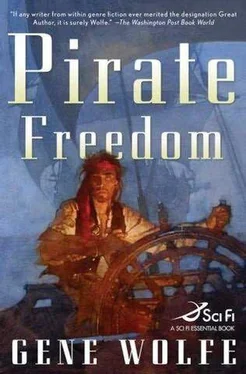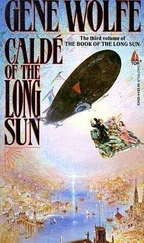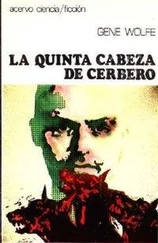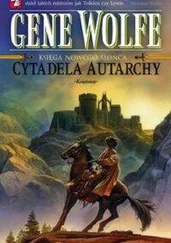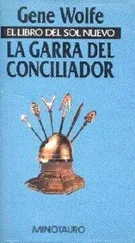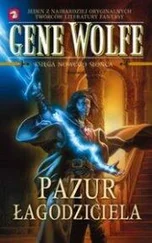Gene Wolfe - Pirate Freedom
Здесь есть возможность читать онлайн «Gene Wolfe - Pirate Freedom» весь текст электронной книги совершенно бесплатно (целиком полную версию без сокращений). В некоторых случаях можно слушать аудио, скачать через торрент в формате fb2 и присутствует краткое содержание. Жанр: Фантастика и фэнтези, на английском языке. Описание произведения, (предисловие) а так же отзывы посетителей доступны на портале библиотеки ЛибКат.
- Название:Pirate Freedom
- Автор:
- Жанр:
- Год:неизвестен
- ISBN:нет данных
- Рейтинг книги:5 / 5. Голосов: 1
-
Избранное:Добавить в избранное
- Отзывы:
-
Ваша оценка:
- 100
- 1
- 2
- 3
- 4
- 5
Pirate Freedom: краткое содержание, описание и аннотация
Предлагаем к чтению аннотацию, описание, краткое содержание или предисловие (зависит от того, что написал сам автор книги «Pirate Freedom»). Если вы не нашли необходимую информацию о книге — напишите в комментариях, мы постараемся отыскать её.
Pirate Freedom — читать онлайн бесплатно полную книгу (весь текст) целиком
Ниже представлен текст книги, разбитый по страницам. Система сохранения места последней прочитанной страницы, позволяет с удобством читать онлайн бесплатно книгу «Pirate Freedom», без необходимости каждый раз заново искать на чём Вы остановились. Поставьте закладку, и сможете в любой момент перейти на страницу, на которой закончили чтение.
Интервал:
Закладка:
I took her back to the ship and chained her in our cabin by an ankle, giving the key to Bouton. "Turn her loose three days after we march," I told him. "For as long as she's chained up, you're in command. When you unchain her, she is."
"And she will sail home!" Novia screamed. "Never, never will she lay the eye on you again!" After that she cried. I waited until she had finished crying and would talk sensibly before I left her.
I had expected us to march the next day, but it was spent on plans, preparations, and more eating. Half of each ship's crew was to remain on board. Four days would be enough for us to get behind Portobello. On the fifth, the ships would fake an attack on the fort, drawing any troops that might be in the town to it. We would take the town from the landward side, loot it, and carry our gains east along the coast far enough that they could be loaded onto the ships beyond the range of the Spanish batteries. LAST NIGHT I dreamed it was all happening again. I was back in the jungle and trying to load my lupara before they rushed us, then wandering drenched with sweat and half blinded by bugs through a battle that never ended, looking for my father and knowing that if I did not find him first we would kill each other.
I do not suppose I dream more often than other men, or that my dreams are more lifelike than theirs. But that dream shook me about as deeply as I can be shaken, and left me so slowly that I wondered whether it would leave me at all. I had eaten lunch and gone out visiting the sick before I was entirely free of it. (If I really am now. It will not be easy to sleep tonight.)
The dream was clearly due to writing about our attack on Portobello. Writing it woke a bunch of memories-the mosquitoes, the screaming of the birds, the big crocodiles with devil eyes, and Paddy Quilligan getting bitten by a snake and dying almost before anybody could ask what was wrong. Tonight I found a Web site that has quotations. I looked for dreams, and this one is so much like mine (and like what we went through) that for a moment I wondered whether Shakespeare could have been along with us. He was not, and yet he might have been. That, I think, must be why so many people say he is so great. Here it is. Sometimes she driveth o'er a soldier's neck And then dreams he of cutting foreign throats, Of healths five fadom deep: and then anon Drums in his ear, at which he starts and wakes, And being thus frightd swears a prayer or two…
We marched under flags by ship's companies, but all the flags were black. So that each might know his own, differing objects were hung from the flagpoles. Capt. Burt, I remember, used the green bough of some flowering tree, Capt. Cox a Turk's head tied in a rope about thick enough for a halyard, and Capt. Dobkin a dried hand. His men said it was his own hand, that had been cut off when he sailed with Mansveldt. Maybe it was.
I have never been good at thinking up things like that and knew it would have to be something light, so as not to tire the man who carried the pole. I asked Novia, and she said she had colored ribbons for trimming gowns, and I could have some of those. She was still chained in our cabin, so I said I would unchain her if she would swear with God as her witness that she would not try to go with us. She said she could not keep it, and it was better to be chained than to break a promise made to God. So she stayed chained, and I went off with the ribbons feeling a lot worse than she did.
Just a minute ago I wrote that there were not really any drums. Then I remembered that there had been, and I had to cross it out. The drums belonged to the Kuna, and three old men beat them. They stayed in the village and drummed for us while we marched out.
We had almost two hundred Kuna with us, and the king's son to lead them. Each of his men had a spear, a bow, arrows, and a steel knife. I know that there were almost two hundred because I tried to count them. The number kept changing, because one or two would run off or come in. But it was almost two hundred, so call it a hundred and ninety.
I never really counted our pirates, because there were a lot more. But we had eight ships, and half the crew of each of the eight. Weald, Sabina, and Magdelena were all pretty big, but most of the others were smaller, the two-stick sloops that people who write about Blackbeard and Capt. Kidd call schooners. I am going to take a guess and say the average for each ship was a hundred men. That is fifty men from each ship, or four hundred men in all. I had sixty-seven men under me, and Rombeau and his seventy-two. I would say Capt. Cox had less than forty, and that may have been the smallest. It was probably better than four hundred-four hundred and twenty, or something like that.
Before we left, Capt. Burt made a little speech. I do not think I remember it well enough to quote it for this record, but one of the things he said was that we did not want any man who did not want to be with us. Any man who wanted to could go back to the ships at any time. Nobody would interfere with him.
Another thing was that those who could not keep up would be left behind. Nobody would blame them, but nobody would carry them either. They could go back to the ships or try to catch up. That was up to them.
After the first day, we lost some men both ways.
The main things I remember about the march are how hot it was and how bad the bugs were. I had been down in the lowland jungles of Hispaniola. I have already written all about that. When I was there, I thought that had to be the worst place in the world for bugs. Darien was every bit as bad, and it seemed to me like Darien was a lot hotter. We greased ourselves to keep them off, and we sweated off the grease and got bitten anyhow. (The Kuna greased themselves just like we did, but they never seemed to sweat as much.) There were big snakes, some of them poison and some not. There were places where you could drink the water, and places where you could not. The Kuna told us which water was safe, but some of the men drank bad water. It gave them diarrhea. After a while the diarrhea would make them too weak to march.
Here I ought to say that the Kuna marched in front and we followed them. Capt. Cox marched next, because they knew him better than any of the rest of us, and he knew more of their language than we did. After him, Capt. Burt. And after Capt. Burt, me and the Sabina gang, with Rombeau and his Magdelena gang right behind us. I had given Rombeau some of the ribbons I got from Novia. His were yellow and white, mine red, white, and blue. They reminded me of home, and after a while I remembered that America had fought Spain once and freed Cuba. It made me feel better about what we were doing.
As far back as I was, it was the third day before I realized the Kuna had women with them. The way I found it out was that when they had found something they thought we ought to know about, good water for example, or a lot of fruit that was good to eat, the chief's son would send a runner back to tell us. This time the news was that they had a Native American from another tribe who had been a slave in Portobello and run away. Only this time the runner was one of the white Native American girls. She spoke enough English, and was good enough with signs, for me to understand that there was somebody new up front the captains might want to talk to.
I told her she was going to get hurt going to war like this, and she said she was as brave as any man, thumping her chest above her breasts and pretending to draw a bow. It might even have been true. I told her good luck and gave her Paddy Quilligan's little gold cross. (One of the men had taken it off his body before we buried him. We had kept his weapons, but we had not searched his body and I did not think it was right to do it. When I found out that Marais had his cross, I said we did not loot our own dead and took it away from him. It had been too late then to give it back to Paddy.)
Читать дальшеИнтервал:
Закладка:
Похожие книги на «Pirate Freedom»
Представляем Вашему вниманию похожие книги на «Pirate Freedom» списком для выбора. Мы отобрали схожую по названию и смыслу литературу в надежде предоставить читателям больше вариантов отыскать новые, интересные, ещё непрочитанные произведения.
Обсуждение, отзывы о книге «Pirate Freedom» и просто собственные мнения читателей. Оставьте ваши комментарии, напишите, что Вы думаете о произведении, его смысле или главных героях. Укажите что конкретно понравилось, а что нет, и почему Вы так считаете.
